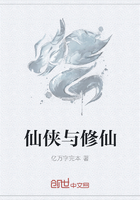CHAPTER ONE One Hundred Days of Quarantine (I)
1
As he began his solitary sojourn in Berlin, Kogito wondered whether it would be even slightly easier to distance himself from Goro-or rather, from Goro's spirit-there than in Tokyo. Kogito knew himself well enough to realize that this was a delicate question.
True, he had left Tagame and the small duralumin trunk stashed in his study at home. But if he started to feel a desperate need to have these things with him, all he had to do was call Chikashi, and she could send them by international mail. (They were already packed in a vinyl box, wrapped in strong paper, and addressed to his lodgings in Berlin, just in case.) The arrival of the sea-mail boxes bearing the books he had shipped from Tokyo to Berlin before his departure had been delayed for some reason, so Kogito was using that emergency process to obtain the German dictionaries and other books that he needed right away. When he stopped to think about it, though, the very act of using Tagame as a means of contacting Goro on the Other Side was nothing more than an arbitrary rule of the game he and Goro had set up. If Goro felt an urgent desire to get in touch with Kogito from his new dimension, surely he would find a more direct method.
As soon as Kogito had boarded his All-Japan Airlines/Lufthansa flight from Narita to Frankfurt, he put on the headphones that were provided. He jabbed repeatedly at the various switches and buttons on the side of his seat, hoping to find some clue or conduit that would lead him to a new message from Goro. But there was nothing, not even a whisper, and Kogito figured that was probably the way Goro wanted it.
After all, it was Goro who had broached the idea of going into quarantine in order to rescue Kogito from his unhealthy addiction (though Goro was talking about Kogito's obsession with the "scumbag journalist," not about Tagame). But it was Kogito himself, already feeling cornered by Chikashi's request for a moratorium, who had seized on that suggestion and made it a reality by accepting the invitation to live and work in Germany for three months. Surely a brief period of separation at this point wouldn't matter to Goro, who had moved on to eternity.
In any case, after moving his own earthly headquarters to Berlin, Kogito didn't make any further attempt to contact Goro. There was no word from the Other Side, either, but it wasn't long after his arrival that Kogito received some unsolicited information about Goro's time in Berlin.
Due to the unconventional way the campus of the Berlin Free University had come into being, its buildings were scattered around a leafy residential district. In one of those buildings-the assembly hall of the School of Comparative Culture-a meet-and-greet panel discussion took place one night, with Kogito as the primary participant. The audience included students, faculty members, people from the publishing company that was endowing the commemorative chair, and a media contingent. It was also open to local residents who were interested in Kogito's presence in Berlin.
After the formal meeting was over and most of the crowd had dispersed, Kogito was approached by a stranger who appeared to have some information about Goro's previous sojourn in Berlin-information that might have some bearing on his subsequent life, and death. When he thought about it, now that he was living alone in this foreign place, with no one to shield him from other people the way Chikashi always did in Tokyo, Kogito wasn't able to pick and choose among the potential informants who descended upon him. Because of that, he found himself standing before them unprotected and utterly vulnerable.
The hall was rather small, and it was filled to bursting. After a panel discussion that featured an animated exchange of questions and comments, a crowd gathered around Kogito and the assistant professor of Japanese studies who was acting as his interpreter. Kogito remained standing, leaning against the tall table next to him while he signed paperback copies of the German translations of his books.
From one side of the lectern, a Japanese woman approached and stood very close to him. She was enveloped in a cloud of heavy perfume, and her voice had a distinct Kansai accent (that is, typical of the Kyoto-Osaka-Kobe area). "I'd like to talk to you about Goro and the new generation of German filmmakers," she announced abruptly, and then continued in a pretentious manner, sprinkled with knowing bits of German, evidently in the hopes of forcing Kogito to listen closely to her every word.
"Please don't worry," she said, "I have no interest whatsoever in discussing any dreary tabloid scandals. That's just the revenge of the M?dchen für alles, anyway. In case you aren't familiar with that expression, it originally meant 'maid of all work,' but in the latest editions of German-Japanese dictionaries, it's now translated, with impeccable political correctness, as 'factotum' or 'a person who will do anything for you.' In English, they might say 'girl Friday,' though in my mind it implies something a bit more, shall we say, personal than that." Kogito had no idea what the woman was referring to, although he would learn the true meaning of the German expression soon enough, and he was shocked by the barely concealed scorn he heard in her voice. (He hadn't had a chance to look at her because he was still busy signing books.)
Meanwhile, the next person in line told Kogito, in English, that the book was a Christmas gift for his mother and asked him to write a specific greeting. But as Kogito started to inscribe the title page his mind went completely blank, and when he asked the student to repeat the request he found himself, inexplicably, speaking French. After those little glitches, he finally got the book signed and handed it back to the student. Then, for the first time, he turned and looked directly at the woman who was standing beside him. He was surprised to see that she was considerably older than she sounded; she looked tired, and she seemed to be surrounded by an aura of impenetrable gloom.
"About that M?dchen…that girl Friday you mentioned. Was she Goro's interpreter while he was here?" Kogito asked.
"Heavens, no!" the woman exclaimed. "She could barely speak German herself. And she wasn't what you would call a legitimate assistant, either, if you get my drift. That's why I used the term 'girl Friday.'"
The woman appeared to be from the same generation as Kogito, which is to say well into late middle age. Her small face was completely overwhelmed by the unnaturally dark, voluminous mass of deep-black hair that was piled on top of it-hair that seemed to be at odds with her years-and when she closed her mouth there was a conspicuous puffiness around her lips, almost as if she were holding something in her mouth.
Kogito couldn't think of anything to say to keep the conversational ball rolling, but the woman didn't seem to notice. Handing him her business card, she said, "It's great that you have so many fans in Germany, but you seem to be awfully busy today, so I'll say good-bye for now. As I mentioned earlier, I'd like to have a long talk with you about Germany's new generation of filmmakers, so please keep that in mind."
As the woman walked away, Kogito noticed that a television cameraman who had been filming the panel discussion had turned his lens on her retreating back. Petite though she was, she walked with long, bold strides, like a man.
"Are you planning to film this kind of conversation, too?" Kogito asked.
"No," replied a Japanese producer, sticking his head out from behind the cameraman. "It's just B-roll footage, to set the scene. By the way, I didn't mean to eavesdrop, but I was surprised to hear that an expression like 'M?dchen für alles'-which is what you might call seriously un-PC-is still floating around. Germany's very strong on feminist issues, you know."
Afterward, Kogito somehow managed to leave the woman's card behind on the table where he had been signing his books. The truth is, he was only interested in one of Goro's female acquaintances in Berlin: the "really nice girl" who had been with him when he painted that watercolor of trees in winter.
As for the "scandalous" woman who figured in the Tokyo tabloid story that had catalyzed (if not precipitated) Goro's death, even if she turned out to be the same person who was supposedly getting her revenge for having been treated as a M?dchen für alles, Kogito could not have cared less about that sordid bit of ancient history.
2
As it turned out, Kogito wasn't able to free himself from the attentions of the big-haired, heavily scented Japanese woman that easily. The S. Fischer memorial lectureship formally began the following week, with sessions every Monday and Wednesday. Kogito taught from twelve till two, but as he learned from the German assistant professor of comparative literature who came to pick him up at his apartment on the first day of classes, there was a custom called the Academic Fifteen, which required instructors to arrive at their classrooms fifteen minutes late and leave fifteen minutes early. Kogito didn't want to spend the fifteen extra minutes before his lecture killing time in the classroom, so instead he dropped by the department's office to say hello. When he peeped into the pigeonhole that had only just been assigned to him, he found a notecard from the woman whose business card he had "accidentally" lost.
Someone-a German university student-kindly let me know that one of my business cards had been "dropped" at the meeting hall the other day. I have never dropped one of my business cards in my life.
On the day in question, I clearly remember handing out only two cards: one to that assistant professor and one to you. I believe in giving people the benefit of the doubt, so I'm going to assume that you left my card behind inadvertently, due to the sort of absentminded carelessness we associate with professors and authors. In any case, the thing I still want very much to talk to you about has nothing to do with the M?dchen für alles affair that I impulsively mentioned the other day, or anything like that. I actually have a very constructive proposal regarding the future of the German film world.
I have to go to Hannover this afternoon, so I won't be able to attend your lecture, but I have the telephone number of the Center for Advanced Research, and I'll be in touch in the next few days. By the way, I'm hoping the lecture will be a huge success. Yours, etc.
Kogito wouldn't have gone so far as to call the lecture a huge success, but it was certainly well attended (indeed, only forty copies of the English text of his speech had been made, to be distributed before the talk began, and an additional batch had to be hastily printed), and after he had finished reading the speech in English, the explanatory lecture went off without a hitch.
Afterward Kogito headed home on the bus he'd been instructed to catch, and as he rode through the city in the deepening dusk, he suddenly remembered the strangely vivid expression "bean harmonica," a colloquial Japanese nickname for a small pocket harmonica. That memory was directly related to the unusual facial configuration of the woman who had accosted him, and when Kogito thought about it he realized that he had heard the expression on one of Goro's Tagame tapes.
This was while Goro was still alive, during the period when Kogito had started listening to the second batch of tapes-an activity that, in a surprisingly short time, had turned into a nightly ritual. Goro had evidently foreseen that development, because each tape he sent was a seamless continuation of the one before, with no introductory greetings or pleasantries, so that when Kogito pressed the PLAY button Goro's monologue always picked up exactly where it had left off.
Hence, it was entirely natural that listening to Tagame should have turned into an indispensable daily routine. Right after Goro's death, there was a time when Kogito forgot to change the batteries (Tagame was a rather archaic piece of equipment, not designed to be user-friendly, so there was no warning that the batteries were running low), and he was afraid the tape recorder had broken down. After that he had developed a fear of allowing anything to interrupt the conversational system Goro had so painstakingly set up. The thought of how bleak his evenings would be if that happened seemed to hover above Kogito's head like the shadow of a giant bird.
In any event, when he first started listening to Goro's tapes one of the recorded anecdotes that had especially impressed him invoked the bean harmonica. Goro hadn't set out to tell the harmonica story from the outset; he just segued naturally into it from a discussion about teaching people how to act in films.
"When you edited that paperback edition of my father's collected essays, one of your commentaries was on a treatise my father had published somewhere else, about how to coach actors-remember?" Goro began. "You compared it to Kenji Miyazawa's Outline of the Essential Art of the Peasant, and as a result you were criticized not only by a group of Miyazawa scholars who believed in the strict 'textual criticism' that was flourishing at the time, but also by a group of film critics who had gotten together to make a new study of my father's written works. They thought your approach was a bit off the wall, as I recall. But although I had reservations about the rather high-flown literary style you chose to use, I did think at the time that there was a visceral, intuitive basis for the parallels you drew.
"The early days of the film industry in this country were really something else, you know? Any time they wanted to invoke a 'Japanese-y' feeling in a scene-which is to say, in pretty much every single scene-the soundtrack would, without fail, be playing some variation on 'Sakura, Sakura.' And when they shot a crowd scene, you could sense that beyond the narrow confines of the set, which was crammed full of extras, there wasn't a soul in sight. That was the sort of thing my father wrote about. And if you want to talk about the origins of the first film actresses, most if not all of them came from that peasant class that Kenji Miyazawa poured so much energy into trying to help. They were probably from the same background as the girls whose parents were so poor that they had no choice but to sell their daughters to the pleasure quarters, or worse. I think my father must have had the same feelings of wanting to do something altruistic for those poor country girls. Both my father and Kenji had the same sort of humanitarian motivations, you know.
"Once the camera was turned on, the actresses would never smile, and when they spoke their lines they barely opened their mouths-those things drove my father crazy. But he always wanted to try to help those camera-shy actresses; that was the feeling he brought to the set. Kenji, of course, tried to introduce the farming class to the magnificence of art and culture, but making that noble ideal a reality was easier said than done. Even Kenji himself probably understood that, ultimately, it was an impossible dream. As for my father, rather than just trying to whitewash those ruddy-complexioned young farmgirls and turn them into pretty, decorative blossoms, I think he was trying to come up with a concrete plan to help them develop their acting skills. As someone who comes from a valley in the middle of a forest, you're probably able to grasp that better than most people. And the plan that my father came up with way back when, in that acting guide, is something that's genuinely useful even today. When I myself was first starting out as an actor, I always kept in mind the advice my father used to give to up-and-coming actors: When you're speaking your lines, always pitch your voice a note or two lower than your usual speaking voice.
"Well, of course, I'm from a different generation, and the moviemaking industry is fifty years farther along than it was in my father's day, but when you think about the teaching of acting that's going on today, it's become so simple that I have a feeling my father would be plunged into despair if he heard about it. The way I see it, if you pour all your efforts into the casting process and put together an absolutely perfect cast, then the movie's already as good as made! Beyond that, there's no need for coaching.
"You hear some people talking about the clique of A-list actresses and so on, right? The truth is that some of those same actresses, even while they are just the latest cute new face, floundering around in a fog, often end up winning the 'best newcomer' acting prizes. And that's what wakes them up to the truth about performing. If the director treats them like serious actresses, they'll give him more or less what he wants, and before too long, as time goes by, they'll end up being classified as top-flight, A-list actresses. That's just the way it is. People may call that kind of skillful acting 'great,' but when actresses get put on a pedestal like that they get into a rut, and they just end up giving the same performance over and over. It's really a staggeringly tedious tautology, you know. An actress who has always played pure, virginal roles gets cast against type and throws herself into a really gritty portrayal of a courtesan in the Heian era or some such. In my father's day there were people like that…but that's nothing more than another rotation of the same tautology. That type of over-the-top performance-you know, the tragic geisha-is meant to make people cry, but I can never watch that sort of thing without laughing.
"On the other hand, many of the women I've actually met up with in everyday life (and these aren't professional actresses, mind you) have dropped their masks and said to me, at some point, 'This is who I really am,' and I'm just blown away by how formidable their acting skills are. You really have to take off your hat to them.
"And it's not as if I've only run into one or two of these specially talented women in my life so far. In the circles I move in, whether I wanted to or not, I couldn't help meeting women like that, one after the other. It's gotten to the point where I think that sort of encounter is the only reason my life has unfolded as it has. All I can say is that it's been a never-ending parade of trouble, with plenty more where that came from! That seems to be my fate, and I embrace it."
This was typical of Goro's disquisitions; the "harmonica-mouth" saga may have been his main topic on the tape in question, but it was prefaced by this extended free-association ramble. Now that Kogito was in Berlin, far away from Tagame, he was remembering more consciously the way Goro spoke on the tapes, and he realized that quite a few of the recordings had probably been made under the influence of alcohol. When they were younger-in high school, even-he had been with Goro on quite a few occasions when he was drinking. The reason he hadn't picked up on Goro's tipsiness when he was listening to the recordings was because now that they were adults living in Tokyo, they each had their own families and their careers had taken them in different directions. So although they occasionally went out for sushi or Chinese food and had a drink or two with their meals, there had been only a couple of times when they met up at some watering hole for the express purpose of drinking the night away. This probably sounds strange, considering that Chikashi was Goro's only sibling, but although Goro had dropped by once or twice on short notice, in recent years there hadn't been a single time when Kogito and Chikashi invited Goro over to their house and they all stayed up till late at night drinking and talking. The reverse was true, as well: the first time Kogito ever set foot in Goro's house in Yugawara was the day after he died.
When Kogito heard that Goro had consumed a large quantity of brandy before jumping off the building (Umeko had even placed an open bottle of Hennessy VSOP in front of the coffin), it struck him as strange and disturbing. Kogito himself had for many years made it a habit, if not a ritual, to have a nightcap before going to sleep, but he tried to keep the damage to a minimum by limiting his intake. Still, no matter how hard he tried to reform his lifestyle (especially after he turned fifty), that single tumbler of whiskey before bed remained an immutable rite. Nevertheless, when he was listening to the cassettes that were delivered before Goro went to the Other Side, it never occurred to him that Goro's extraordinarily high spirits and emotional openness-to a degree that would have been unthinkable if they were in the same room-might be due to the liberating influence of alcohol. Also, it was clear that the distinguishing feature of Goro and Kogito's relationship, from start to finish, had always been their tutor-pupil dynamic. (Goro, needless to say, played the role of tutor.) Now, of course, that relationship was on hiatus, but when Kogito thought about his Tagame conversations with Goro, he had a feeling they might not yet be at an end.
As Goro was riffing about coaching actors, he invoked the woman he'd nicknamed "Bean Harmonica." She was, he maintained, a classic illustration of his theory that even with all the acting training he himself had received over the years, he couldn't hold a candle to the normal, everyday behavior of someone who was naturally endowed with remarkable histrionic gifts.
"There was one woman, especially," he recalled. (He never did mention the woman's name.) "She always tried to conceal it by wearing her hair down over her face, but if you were to lift up her bangs with both hands, you'd see that she had something not often seen among Japanese women: a majestically high forehead. She had very expressive, deep-set eyes, and the space between her splendid nose and her upper lip was very small. It's hard to describe, but the overall effect was indescribably attractive. However, in a matter of seconds that lovely, smiling face could be transformed into a mask of resentment, bitterness, and discontent. Or else she would start wheedling, trying to talk me into something with tears welling up in her eyes.
"And then, suddenly, she would just clam up. At times like that it looked as if she was holding one of those toylike miniature harmonicas in her charming, oversized mouth, with her lips closed over it so that her mouth was stretched into a rectangle. And with her complicated facial expressions playing around that harmonica mouth-there's no actress, no matter how accomplished, who could ever portray such a roller-coaster range of emotions on screen. I can't even imagine it. The thing is, that acting ability was hereditary: the gift of the mother, passed on to her daughter!"
Now, in Berlin, as he ruminated about what Goro had said on that tape, Kogito gradually began to discern a thread of logic running through the chaos and confusion. He had initially been reminded, vaguely, of the phrase "bean harmonica" by the facial expression of the woman who accosted him after the panel discussion, and that was what had inspired him to try to recall its context. Goro's powers of observation and description were prodigious, as evidenced by the nicknames he bestowed on various people. If the friend he called "Bean Harmonica" was the same person as Goro's "nice young girl," then wasn't it within the realm of possibility that the big-haired woman might be her mother? If that was true, then Kogito had seen the parental version of the pouty, stormy-faced expression Goro had described. Given that peculiar facial structure, and assuming it was shared by a biologically related mother and daughter, it wasn't difficult to visualize the daughter's face based on that of the mother.
But if (Kogito's flight of conjecture continued) Goro's "nice young girl in Berlin," his interpreter/assistant, really was the aggressive woman's daughter, why would a mother betray her own offspring by saying such disloyal and harshly critical things to a stranger? That question added a new riddle to Kogito's list of unsolved mysteries.
3
As he gradually became used to his days (and especially his nights) of quarantine, Kogito made frequent phone calls to Tokyo, as if to compensate for being deprived of his Tagame sessions with Goro. On the occasions when he phoned the unfailingly helpful assistant professors or the department secretary at the university, the telephone would start to ring in the German way: puu-tz…silence…puu-tz…silence. In contrast, when he placed an international call to Tokyo, he would hear the familiar Japanese ring-although he knew that what was actually echoing through the living room was probably a few bars of Mozart's chamber music, which Chikashi had installed as a customized ring. And then a quiet, sorrowful voice would answer the phone: "Yes?"
Although they weren't really able to engage the gears of conversation, Kogito and his son would always imbibe each other's "vibrations" over the phone line for a couple of wordless minutes. Then Akari would either hand the phone to his mother or else say, "Mama isn't here," in that same melancholy tone of voice, and then lapse into silence.
Chikashi, on the other hand, was usually upbeat and voluble on the international phone line. Sometimes she and Kogito even talked about literature-something that rarely happened when they were face-to-face in Tokyo. One day, after winding up a conversation about various practical matters, Chikashi asked a question that she seemed, characteristically, to have been carefully composing in her mind: "When you were still young, during the time when you were mainly reading literature in translations, there were times when you talked so fast that I couldn't quite catch the pronunciation, even though you were speaking Japanese. Still, the content of your talks was always very interesting and enjoyable. It seemed to sparkle, and you used to use some really quaint, fanciful expressions. Then after you came back from your long stay in Mexico City, you began to read things in their original languages rather than in Japanese translation, and the feeling of the words you used in conversation seemed to change as a result. I sometimes think that your words took on a new depth after that.
"However, I didn't hear as much of the curious, quixotic strangeness and interesting flavor that I used to notice before when you talked. And wasn't it the same with the words you were using in your novels? Maybe it was a matter of maturity, but your words just didn't seem to sparkle like they used to. And somehow, while I was thinking that way, I stopped reading your novels altogether. So I can't really speak about the novels you've written over the past fifteen years or so, but I can't help wondering whether there might be a connection between the change in your style and the fact that you started reading foreign books in the original languages. I realize that the usual thing you hear from the very same people who read books in the original is that those are much more entertaining than when they're translated into Japanese, so what I'm saying probably contradicts the conventional wisdom."
"That may very well be true," Kogito said. "It was when I was in my late forties that sales of my books started to slow down, and that was right about the time that I cut way back on reading work in Japanese translation. Just as you say, the sparkling appeal of my prose, such as it was, probably did fade a bit. For me, the attraction of reading work in translation-something entirely separate from the pleasure of reading it in the original-is that there's something incredibly lucid and straightforward about it. I often find myself marveling at translations, being surprised at various things (Oh, is that how they translated this part? Can they really get away with taking such liberties?) and also thinking that I myself could never use Japanese in such a way. Some of the young, prodigiously talented translators, in particular-they show a strength and authority that's almost uncanny."
That day's phone conversation ended on this note, but after an interval of several days Chikashi, who had been putting in order the incoming gifts of books and magazines, called to report on the presentation copies of books that had arrived from various friends during Kogito's absence and various other matters. Afterward she ventured, "This is picking up where we left off, but some of the prose by young people who are translating new works from French into Japanese is extraordinarily interesting, don't you think?" she asked.
"Well, yes, I would agree with that," Kogito responded. "At the other end of the spectrum, leaving aside the groups at the West Coast American universities who have been directly influenced by Foucault, English writing can be a bit of a slog-rather like a local train that stops at every station. In particular, what's being written by scholars in England…in fact, I think the reason my style lost its sparkle might have something to do with having read too many Cambridge University Press research monographs about everyone from Blake to Dante."
Ignoring Kogito's typically self-mocking digression, Chikashi said, "Anyway, the passage I'm finding interesting right now may not be important at all, but it really struck a chord with me. It's from a Japanese translation of a French book called René Char in His Poetry, which was written by a French-literature scholar who seems to be quite well known and accomplished in the field. It's a gigantic book, and I have to admit that I can't understand the interpretation of Char's surrealist poems and so on, at all, but anyway, I've just faxed you the section I mentioned."
Chikashi's fax was a page from that book-a monumental work of biographical literary criticism in which the author makes reference to everyone from Wittgenstein to the Marquis de Sade-underlined here and there with what Kogito recognized, even on the blurry fax paper, as one of the no. 2 pencils Chikashi used to render preliminary sketches for her watercolor paintings.
The rambling section begins with a discussion of René Char's difficult relationship with his mother, which the critic describes as "more Baudelairean than Oedipal." A brief digression about Char's three favorite pursuits ("writing, fighting, and making love") is followed by a metaphorical passage comparing the poet's mother to a she-bear. It goes on to say that there comes a time when a man must reject the part of himself that was licked by the mother bear; that is, he must throw away the rules he learned at his mother's knee.
In the phone call that followed the fax, Chikashi explained the thoughts this passage had awakened in her, and Kogito found himself borne along on the same wave. Chikashi was particularly excited by the nuances of one particular phrase-"the time is ripe to think about throwing away the part that was licked by the mother bear"-in the lines she'd faxed to Kogito in Berlin. "Licked," of course, referred not only to maternal affection but also to the sterner aspects of child raising. (Indeed, people in medieval Europe used to believe that bear cubs were born as eyeless, formless lumps of flesh and had to be literally licked into shape by their mothers.)
"When I first read this phrase, I thought it said everything there is to say about Goro," Chikashi declared. "He grew up being constantly 'licked' by the mother bear we called Mama. There's a saying that someone's being smothered with affection, right? Well, when Goro was a child, from my point of view as his younger sister, he really did appear to be suffocating under the weight of our mother's affection. Even so, I wasn't jealous; I thought it was perfectly appropriate for him to receive special treatment and extra care. He was a remarkably beautiful child, and he was so talented at drawing pictures that a publisher in Kyoto once asked him to design the cover for a book. This was during World War Two, but as you know he was even chosen for the special science academy that was created by the government.
"Supplies were tight during wartime, but our mother somehow managed to get her hands on a collection of art supplies that a professional painter would have envied. She also made up a reading list featuring science books aimed at children and got hold of all sorts of unusual things for Goro to read. But she had a severe side as well, and sometimes when Goro didn't seem to be taking her efforts seriously enough, she could be quite frightening. It's true; he really did grow up being 'licked by the bear,' in every sense of the phrase.
"Remember when Goro got to know some psychologists who specialized in Freud and Lacan? He allowed himself to fall meekly under their influence in a way so unlike him that it struck me, watching from the side, as really strange…almost creepy. While that was happening, Goro was so completely spellbound that he used to talk about those psychologists really ingenuously, with such total trust and na?veté, and he wrote later in one of his books that they had helped him to finally get free of his mother. For me, though, I never thought he could escape so easily. I know I'm an ignorant person, and I realize it's a childish kind of skepticism, but I can't help wondering whether psychology can really be effective on fully formed adults. I mean, look at Goro; he was a sophisticated intellectual who'd been around the block a few times, wasn't he?
"To be honest, I always thought that at some point the whole psychology thing would turn around and bite him. I'm not saying that he died the way he did as a direct reaction to all that psychiatric mumbo jumbo. But when it comes to the tangled complexities of Goro's psychological state, I can't help thinking sometimes that I really would like to see those meddlesome psychologists take some responsibility for what happened in the end."
4
Although Akari was singularly uncommunicative when Kogito phoned home from his Berlin apartment, he was perfectly comfortable with putting his thoughts down on paper and sending them to his father by fax. When Chikashi began drawing illustrations for Kogito's essays, Goro had remarked, "She's only just begun, but already she has her own style." Remembering that, Kogito thought: If only he could see Akari's drawings. For example, next to a picture, drawn with marking pen, that showed Akari and his mother climbing the ramp to a giant jet airplane, Akari wrote, "I think I will go to hear the Berlin Philharmonic. Schwalbe and Yasunaga are very good first violins. I will bring Chikashi to Berlin with me." However, Chikashi nixed that plan because she was concerned that Akari might have one of his epileptic seizures if they traveled to a northern European city in the dead of winter.
Kogito glued Akari's faxed drawing to a piece of thick, heavy paper and kept it on the table in his apartment's kitchen. Akari was good at math, and he had written in the fax number by himself. While Kogito was looking at that number, which was for the machine at the Center for Advanced Research, he noticed something. Akari had not only memorized the long number, including 0014930, the international dialing code for Berlin-that sort of thing was his forte-but also incorporated the number into the picture he drew with markers. That, surely, was because when Goro had been in Berlin for the film festival, he had called unexpectedly and had left that number so Kogito could call him back.
Kogito had forgotten Goro's callback number in Berlin, and Akari saved the day by quietly reading the number off one of his sheets of five-line music paper, where he had jotted it in the margin. He had been sprawled on the floor nearby, composing music, and had apparently been listening when Kogito repeated the number into the mouthpiece. Kogito and Chikashi had both praised Akari to the skies for this feat, and he clearly hadn't forgotten. On top of that, he was probably delighted anew by the pleasingly symmetrical fact that the first half of his father's current fax number was the same as that of the number Goro had left several years earlier.
And then Kogito remembered that a young woman had been at the hotel with Goro on the day in question. After that, all sorts of details came flooding back. Goro had called from Berlin with an unusual request: "You know that story about how you met one of your more, um, enthusiastic fans in Nagasaki? There's someone I'd like you to share it with. And please tell it in English, just the way you told it to O'Brian, years ago. He helped you to improve it so it would sound more like the Queen's English, right? So tell it just like that. Chikashi said that the corrections O'Brian wrote down on some index cards and sent to you were very amusing. See if you can dig up those cards, and then call me back. There's a speakerphone switch on this telephone, so we'll be able to hear you all over the room."
When Kogito asked, "And why do you want me to do that, pray tell?" Goro responded cheerfully, "There's someone here; she's Japanese, but she was raised overseas, and now she's acting as my German interpreter. She speaks very good Japanese, as well. But when she told me that she was only able to laugh at a joke or a funny story if she heard it in her first foreign language, English, that really blew me away. I mean, I'd never heard of such a thing. So I figured that she would enjoy that story about your adventures in Nagasaki, and you've already put it into English. You even have those cards with O'Brian's notes about how to improve the wording."
Abruptly, Goro segued into a treatise about the weather. "They say it's going to snow today for the first time this year, but in the places where the thin branches of the bare black trees are intricately interlaced, you can already see some light snow beginning to accumulate, weighing down the trees," he said. "Sometimes the forward-tilting trees will be pressed back by a slight current of air, and in that instant of contrapuntal tension the throngs of trees seem to be perfectly still. I've been watching them a lot, and for some reason it's put me in a very good mood, so I just felt like asking you for an unreasonable favor. Call me when you're ready-I'll be waiting!"
Kogito had fond memories of that conversation with Goro, who seemed to be unusually high-spirited and loquacious. He was obviously enjoying the outrageous spontaneity of asking for an elaborate favor over an international phone line, and having a young woman next to him, listening in, must have added to his pleasure.
O'Brian was a famous English-or, more precisely, Irish-actor who had costarred with Goro in Lord Jim, in 1965. When O'Brian happened to come to Japan for a visit, Goro threw a small party for him at the house he shared with his then wife, Katsuko (the only daughter of the owner of a company that imported Western films), and he asked Kogito to come and keep the Englishman company.
While Kogito was chatting with O'Brian, the anecdote the Englishman seemed to find most entertaining was about something that had happened not long before the party, when Kogito was in Nagasaki. He had been invited by the chairman of a left-wing publisher's labor union to give a lecture to a gathering there, but whether it was publishers, newspapers, or broadcasting stations, the hard-core union organizers had very little use for so-called progressive novelists-at least not for those who didn't officially belong to the Communist Party or to the extreme-radical minor factions. And on this day, sure enough, that was the sort of treatment that Kogito received: minimal, almost grudging hospitality.
Because of the inconvenient scheduling of nonstop flights, Kogito arrived in the morning, but the "finger-flute" (that is to say, finger-whistling) concert and Kogito's literary lecture weren't scheduled until evening. As expected, after being given a dubious-looking box lunch he was peremptorily shuttled off to the union's lodging house.
Kogito had hardly finished eating the greasy fare when severe cramps and diarrhea set in. He ventured out onto a lively thoroughfare to buy some medicine, but there were no pharmacies to be found. As he was wandering around, he ventured down a narrow alley that looked more like a dimly lit path leading into a mountain vale than a byway in the middle of a city. There he found a small apothecary shop, crammed into a storefront no more than six feet wide.
When Kogito pushed open the old-fashioned glass door and entered the shop, the fortyish woman who was sitting in a cramped space with her back to the medicine-laden shelves turned her round, pale face in his direction. "Oh!" she exclaimed, stifling a shriek of surprise.
Paying no attention to this odd response, Kogito asked for some paregoric, but when he tried to pay for his purchase, the proprietor, who was still seated, gazed up at him, flushed and perspiring. "Oh, my goodness," she said, in a low voice that was almost a moan. "Sometimes you really do get what you wish for!"
Then, abruptly, she launched into a remarkably spirited account of her life story. She explained that she had attended the pharmaceutical studies department of a university in Kyoto and was a passionate fan of Kogito's work who owned a hardcover copy of every book he had ever published. She had taken over this family-owned pharmacy after her father's sudden death. The shop was near a red-light district, and it had stayed in business for many years by specializing in contraceptive devices and remedies for sexually transmitted diseases. After the Anti-Prostitution Law was passed there had been some lean times, and it had looked for a while as if the pharmacy might have to close its doors, but she always clung to the belief that as long as she could hunker down and stay in business, someday she would have a chance to meet Kogito Choko.
Kogito was a little concerned about a disreputable-looking middle-aged man who was loitering outside on the curb next to the gutter with a kimono-clad woman in tow, so he tried to take his leave as quickly as possible, but the female proprietor reached under the counter, took out a carton containing a six-pack of larger-than-usual bottles of some sort of energy drink, plunked it down on the counter, and said, "Please try this-I'll give you a special VIP discount."
"Actually, I don't really drink that sort of health potion," Kogito responded.
"Oh, no!" the pharmacist protested. "This isn't your simple, garden-variety health drink. It contains garlic, and Korean ginseng, and even ground-up seahorses. See what's written on the bottle? DRINK IT NOW! GET IT UP! DO IT TWICE! I'll let you have a six-pack for only two dollars, so why don't you take a couple of cartons home with you?"
As the woman slapped a second six-pack down on the counter, the shady-looking man who had been hanging around outside barged into the pharmacy with his female consort and shouldered his way to the counter. "If you're having a sale, I'll buy some," he said gruffly. "Two cartons, please!" The timing seemed suspicious, and Kogito couldn't help wondering whether the man's appearance might be part of a prearranged charade.
"Coming right up," said the proprietor. "The special price for one box is thirty dollars, so your total will be sixty dollars. I'm sure you're familiar with this amazing product. You know their slogan: DRINK IT NOW! GET IT UP! DO IT TWICE! Your lucky missus is going to be in seventh heaven! Thank you for your business."
That's all there was to the story, but O'Brian showed his marvelous character by not only laughing uproariously but also helping Kogito, afterward, to make his laborious telling of the anecdote much tighter and more forceful. When the Irish actor was on the airplane, heading home to London, he spent a good deal of time reworking the English translation of the advertising slogan (DRINK IT NOW! GET IT UP! DO IT TWICE!). He even gave his notes to a crew member on the flight, which was returning to Narita, with instructions to deliver them to Kogito. O'Brian suggested a way of making the slogan "a bit more lewd," and Kogito obligingly changed the words to GET IT UP! GET IT ON! SHAG ALL NIGHT!
By the time Kogito had located the card bearing the English-language version of the anecdote it was already midnight in Tokyo, but it was still late afternoon in Berlin. While he was telling the story over the telephone, he couldn't help noticing the contrast between the youthful freshness of the girl's laughter-she was clearly excited about the first snow-and the mature rumble of Goro's satisfied-sounding laughter, as the two merry voices intermingled.
Kogito was pleased to realize that a memory that had seemed to be extinguished was actually very clear, especially since it was a recollection that seemed to be infused with (these were the first words that sprang to mind) a sort of crystalline brightness. In Goro's twilight years, which had come far too soon, that kind of delight was rather rare.
5
While Kogito was living in Berlin, he always had Saturdays and Sundays free. There were no classes, no lunches with his colleagues at the Center for Advanced Research, no academic presentations. Kogito had very little desire to stroll around the noisy, teeming streets, so he usually passed the time by lying on his bed and reading a book, or reminiscing about various things having to do with Goro. While his mind was meandering dreamily through his memories, it sometimes headed off in a distinctly R-rated direction.
One such reminiscence dated back to a time when Goro, who was still married to Katsuko, was frequently going overseas for film roles. Goro was just back from America when he turned up one evening in a taxi to visit Kogito, who had himself only recently returned from a teaching stint at the University of California at Berkeley. Goro rarely took taxis-he preferred to tool around in his sleek, luminous Bentley-and the reason he deliberately used one on this night was because he was planning to drink a large quantity of whiskey in the hopes of routing the depression that was plaguing him.
Throughout the evening, Goro held forth while sipping continuously from a glass filled (and refilled many times over) with Old Parr whiskey, neat, from a bottle Kogito had received from his publisher as a holiday gift. Chikashi kept them company until shortly after 10 PM, then excused herself and went to bed. After that it was just Goro and Kogito, one-on-one. Maybe Goro had been restraining himself while Chikashi was present, but from then on, even though he seemed to be growing increasingly melancholy, he kept up an antic, eloquent stream of anecdotes.
The previous year, Goro had spent six months acting in a Hollywood film that was made with the intention of justifying the western side of the Boxer Rebellion, and he had just returned from attending the movie's premieres in Los Angeles and New York. He had been given a major role as a military officer attached to the Japanese embassy in Beijing (then known as Peking)-there was even a scene where he cradled the lead actress in his arms and helped her to escape while bullets were ricocheting off the walls and the unpaved road around them. The review in Los Angeles's leading newspaper singled Goro out for special notice, rhapsodizing about his "glamorous charm" and remarking that he had an unusually charismatic presence for an Asian actor. Kogito happened to read that article, and he clipped it out and sent it to Goro's then wife, Katsuko.
But when Goro returned home and looked at the Japanese reviews, he discovered that most of them completely ignored his performance. One anonymous weekly-magazine film reviewer focused on a scene in which Katsuko had a walk-on part as a married woman, splendidly dressed in kimono, who attends a Christmas party for the employees of all the foreign embassies in Peking. The review concluded with the snide remark, "This is the reason Goro Hanawa passed his audition," implying that Katsuko's family-business connections had been a factor.
As Goro slid ever deeper into drunkenness, Kogito started talking about Yukichi Fukuzawa's trademark word, enbo, meaning resentment, bitterness, or envy. Kogito quoted liberally from Fukuzawa's seminal treatise, An Encouragement of Learning, which he had used as a text in a class he'd taught at Berkeley. In Japan, he explained to his increasingly bleary-eyed brother-in-law, there was only one reason why Goro, as a Japanese actor who was successful abroad as well, would be slighted or even looked upon with disdain. That reason was pure enbo: bitter, envious resentment.
According to Fukuzawa, virtually every word that's used to describe people can be a two-sided coin. For example, depending on your tone, frugal can mean admirably thrifty or despicably stingy, while rough and ready could imply either courageousness or bellicosity. The exception, he says, is enbo. No matter how you look at it, enbo is a complete waste of time; there's no way you can put a positive spin on envy, bitterness, and resentment, or turn those emotions into positive human traits.
To which Goro replied, "When it comes to being tormented by the envy and resentment of others, you're in the same boat as I am, with that vindictive journalist making a cottage industry of dragging your name through the mud. Just watch-as soon as you win a big international prize for literature, that 'eminent authority' will rush to press with a book that totally trashes your entire life and work." Goro as prophet: that was exactly what did happen, some years later.
"I really don't worry too much about this kind of stuff," Goro went on. "But getting back to that article that you went to the trouble of cutting out and sending to Katsuko, where the writer singled me out for special praise? Well, the truth is, I've been having some personal problems with that writer. You're lucky you don't have to deal with that sort of thing." Kogito felt disappointed by the way Goro seemed to be changing the subject, as if he wasn't taking Kogito's point seriously, so he was gratified to learn from Chikashi, some time later, that Goro had been enthusiastically sprinkling his conversations with his new favorite word: enbo.
It gradually emerged that the film critic who had singled Goro out for such lavish praise in that L.A. newspaper was a fiftyish woman named Amy, who had traveled with Goro's group for part of the time while he and some of the other actors were on a promotional tour for the movie. After the initial interview, whenever Goro had a little free time she would invite him to join her for dinner at some small restaurant near wherever they happened to be staying, to continue the more detailed interviews she said she needed in order to write a longer article about him.
When Goro returned to San Francisco on the day before he was scheduled to go back to Japan, the film critic took him to a cozy restaurant in Chinatown and did a lengthy follow-up interview. After that, as they were wending their way up the steep, narrow road that led back to the hotel, they stopped for breath and somehow fell into a passionate embrace. Goro made no effort whatsoever to hold his hips away so the reporter wouldn't be aware of his arousal; on the contrary (he told Kogito) he was insistently pressing his erection against her abdomen the entire time.
Perhaps it was a response to the rather formal English he had been forced to communicate in during the series of interviews, but something definitely awakened his aggressive-male tendencies. Or maybe it was because he had built up a lot of sexual energy during the ten days he'd been traveling around America to promote the film. Anyway, the upshot was that instead of heading back to her own place, Amy accompanied Goro up to his hotel room.
"Before that," Goro explained to Kogito, "it was obvious that she was very healthy and vital, but she just seemed like a plump, jovial, intellectual sort of woman. Once we got down to doing it, though, she turned out to have an absolutely mind-boggling appetite for sex. I mean, any aperture you could think of-she didn't seem to care whether it was front or rear. All through that night, until morning, she was constantly touching my body somewhere, and when we weren't actually having intercourse she would use every trick imaginable to get my penis to stand at attention again. All she wanted to do was to have sex with me, again and again. And when even the famously indefatigable Goro finally reached the point where there was simply nothing left to ejaculate, she would take my cock in the corner of her mouth and then show me exactly what she wanted me to do with my fingers while she worked on me furiously with her tongue. Then when I somehow managed to come again, she would catch my semen on that tongue of hers, like a chameleon. And when the limo came to pick me up the next morning, she hopped in, too, and she kept on playing with my poor, worn-out penis, all the way to the airport. Then just recently, when I found out that I had gotten an acting job that involved going to Spain for three weeks, to shoot on location, she informed me that she had booked a room in the same Spanish hotel. Frankly, I'm terrified by the prospect of twenty more days of carnal excess, and I think I'm speaking for my penis, too, when I say, 'Enough already!'"
Kogito could feel the amusement breaking through his old friend's subdued mood, but then Goro lapsed into a dark silence and went back to guzzling whiskey with an undisguisedly sorrowful look in his eyes. Kogito couldn't resist offering some unsolicited advice; it was an old habit of his, dating back to their days as schoolboys.
"Why don't you try looking at it this way?" he suggested. "Between your last meeting in America and your departure for Spain there's what, two or three months or so? In that case, when you finally get together again you'll be overflowing with pent-up passion-at least for the first three days. And soon after that, you'll take off for location shooting at special sites around the Spanish countryside, and there will be days when you don't go back to the hotel at all. And then when you do return to the hotel, after being away for a few days, you'll probably be thrilled to be reunited with Amy again, and your reunion will have a kind of nostalgic freshness."
Goro was completely drunk now, and his extreme intoxication was probably part of the reason why his voice suddenly sounded as if he was on the verge of tears. "You may write dark, heavy, gloomy novels," he said, "but when you say something like that it makes me think that you're really a fundamentally optimistic person. You don't really act like it, though. I mean, even though you married someone totally down-to-earth like Chikashi, who isn't in the least bit needy or demanding, you still choose to spend your nights alone on a monastic cot in your library. Still, I really can't believe that you're a completely solitary, pessimistic guy at heart-especially when you start going on about thrilling reunions and 'nostalgic freshness'!"
As it happened, Goro's Spanish rendezvous with the American film journalist turned out unexpectedly well; indeed, everything transpired in almost exact accordance with the comforting scenario that Kogito had conjured up out of thin air in an attempt to alleviate Goro's anxieties. According to the story Goro told Kogito much later, on the day Amy arrived at the hotel that would be the crew's base of operations, she and Goro ended up having sex twice while the sun was still high in the sky, and again late that night, and then one more time the next morning. Afterward Goro broke out in a cold sweat, thinking that twenty more days of this would be absolute hell, but fortunately the bacchanal was brought to a halt after only four days when the Spanish investors whisked the actors away to Madrid.
And then, just as Goro was wondering why they were all partying in Madrid instead of working on the film, it was announced that the Spanish location shooting had been canceled. In order to placate one of the backers, who had made his fortune by exporting inexpensive Spanish wine, the producers had initially promised to shoot at a typical wine-producing location, but apparently the production side wasn't serious about this plan, and the majority of the supplies and equipment hadn't even been shipped.
That was the situation, and it was a mess. As a result, it was decided that the location shooting would move within the week to Flores Island, in Indonesia, and Goro spent the better part of his final two days in Spain engaging in genuinely warm, friendly, heartfelt sexual intercourse with the American journalist. In order to catch her plane, which left long before the film crew's flight to Indonesia, Amy had to crawl out of bed while it was still dark, so there was no time for a voracious sexual farewell, and this richly experienced woman of the world said good-bye to Goro with the solemn, dignified air of someone who knows how to control her desires…if she really has to.
Goro's obvious exhaustion from shooting a movie in the tropics over a long, hot summer could have been a factor as well, but as he shared this tale of adventure, Kogito got the impression that he was lost in contemplation of some sort of hardship or suffering that Kogito couldn't even begin to imagine. Whatever else might have happened, Kogito thought that Goro's heroic performance on the day the plump, insatiable American woman arrived in Spain from California, when he managed to perform sexually four times in less than twenty-four hours, was a triumph of perseverance and effort. And as he listened to the story, Kogito felt a resurgence of the childish feelings of respect and esteem for his old friend that had first sprouted when they were in high school.
6
In Russia, before the revolution, there was a craze for building vacation villas in Berlin, and one Russian millionaire spent a small fortune erecting an enormous mansion, complete with Greek-style murals on the fa?ade and cylindrical columns supporting the roof. The exterior still retained its original opulence, but the interior of the building had been remodeled and turned into apartments for the faculty of the Center for Advanced Research. Kogito's flat was on the third floor, overlooking a lake.
After the Christmas holidays, and after the birth of the new millennium had been celebrated with a noisy all-day eruption of fireworks that continued until midnight on December 31, 1999, the Free University opened its doors again and Kogito resumed his routine of riding the bus to and from work. The entire journey took no more than thirty minutes. From nearby Hagenplatz (where Kogito always went on foot to buy wine and groceries) he boarded the bus that ran down K?nigstrasse, and when he got to Rathenauplatz he changed to a bus that originated just before the busy boulevard of Kurfürstendamm, better known as Ku'damm. Even on days when the frozen lake was piled high with snow in the morning, the white stuff always stopped falling by midday, and although there were days when the city streets seemed to have been turned into frozen icebahns, traffic always went on running smoothly under perpetually cloudy skies.
One afternoon, after Kogito had finished both his formal lecture and the subsequent Q-and-A session with students known as office hour, he had just stepped out into one of those typically dark, overcast Berlin afternoons, where the sun isn't really shining but doesn't seem quite ready to set, either, when he heard the familiar voice of a Japanese female calling his name.
In short order, the woman caught up with him as he walked down the narrow road, which was piled high on both sides with plowed snow. She looked rather odd, wrapped in a heavy greatcoat that fell nearly to her ankles, but even though Kogito had been approached by a large number of people during his stay in Berlin, he remembered this person immediately, with her cryptic talk of a M?dchen für alles and her curiously puffy, oblong harmonica mouth.
"I hope you won't mind if I keep you company while you're riding home on the bus," the woman said. "Though I'm not sure whether I'll be able to say everything I want to in such a short time." Without waiting for a reply she fell into step beside Kogito, so close that their shoulders were almost touching. And then, abruptly, her previously polite way of speaking changed into a style somewhere between inappropriate intimacy and outright intimidation. "Just as I thought, you don't have any sort of assistant or M?dchen für alles yourself, do you?" she demanded. "I've tried telephoning you a number of times at the office, but even when the switchboard forwards the call to your apartment, there's never any answer!"
During all his years in Tokyo, Kogito had hardly ever been subjected to this sort of behavior: having someone lie in wait for him, then brashly invite themselves to keep him company. In Berlin, though, it took a good ten minutes to walk to the bus stop from the Free University's classroom buildings (which, as mentioned before, were in a residential district), and Kogito seldom walked alone on his customary route, which involved trudging down the slope of a wide, shallow former pond that had, at some point, been drained and turned into a park, then climbing up the path on the other side. Most often, he was accosted by students who still had questions about the lecture he'd just given; other times, he was joined by Japanese expatriates who were auditing his class or young journalists from Taiwan who were living in Berlin and sending articles back to publications in Taipei. If he could just manage to get past his instinctive negative reaction to the intrusions, he sometimes ended up feeling that the ensuing conversations weren't entirely meaningless.
As for this vivacious person who was marching along beside him with long strides, kicking up the hem of her ankle-length overcoat: although she was clearly the same person who had first approached him on the night of the panel discussion, on this day she seemed very different from that rather glum, tired-looking Japanese woman, teetering on the brink of late middle age. Indeed, she reminded him of a certain type of local woman he often saw around Berlin, standing on some street corner waiting impatiently for the light to change-extremely energetic and completely self-centered. The things she said when she approached him this time had an aggressive edge that seemed to be in keeping with her costume and even with her way of striding along, like a man.
"You hear this a lot here," she said, after she had finished berating him for not answering his phone every time it rang. "The German people I've been around often say that Japanese people talk too much about personal matters-even the writers and film directors who have given public talks here. I've had my doubts about that, but after hearing your lecture today I found myself thinking they were right. Maybe it's just because you are who you are, but you really do seem to talk an awful lot about your private life."
"As you know, my English pronunciation can be hard to follow, so I've been distributing copies of lectures that I've given in the past at universities in America," Kogito responded. "Then, while reading those lectures aloud to the class, I incorporate additions and digressions, rather like footnotes. When the text is something with a hard context, I add personal notes from time to time in the hopes of softening the lecture a bit."
"I sat in on your lecture today, and I noticed that the text you used was the same speech you gave in Stockholm," the woman said. "That lecture began with some personal reminiscences, right? You started off by talking about the music composed by your disabled son, Akari, and from there you extrapolated into universals. It was very moving, but I suspect that there are some Germans who might feel that it was more than they wanted to know about your personal life. Too much information, as they say."
"No doubt you are entirely correct about that," Kogito said stiffly.
They had reached the basinlike bottom of the slope, and the notoriously frigid Berlin wind was swirling around them. Kogito's head felt feverish from the strain of having been forced to speak English (not his strong point) for two solid hours, and the radical disparity between that cerebral heat and the profound chill that permeated his body left him feeling somehow detached, as if he were suspended in midair between the two extremes. The woman evidently sensed his discomfort and adroitly changed the subject.
"There's a high place over there, where the snow is still piled up because no one steps on it. Down at the bottom, a woman is walking her dog-do you see? And the man she's with is sitting on a big, round boulder? They say that rock was dislodged by a glacier somewhere around Norway, and it ultimately ended up tumbling all the way down to Germany."
"That one rock came all the way from Norway, by itself?"
"That hardly seems likely," the woman retorted. "Surely there must have been others."
When their climb brought them to an overpass above the train tracks, Kogito spotted a tall bus approaching in the far distance, but he couldn't very well say an abrupt good-bye and sprint off to catch it. Office hour had ended around four o'clock, and he knew that this bus ran only three times an hour, so he resigned himself to being trapped in a prolonged conversation with this woman while he waited for the next one to come along.
That was when the woman got down to business. "I wanted to introduce myself again, properly," she began. "Please don't lose this one." As she spoke, she thrust a business card in the direction of Kogito's sternum. She evidently expected him to be less than eager to accept it, because she held on to the card for a few extra seconds even after he had it firmly in his hand.
"I think you've probably heard about me from Goro, by my former name," she continued. "The name I'm using now is a combination of my own surname and that of my current husband. He came here from what used to be East Germany, and he's involved in the redevelopment of the East Berlin area. Let's just say he's in the real-estate business. But he's very cultured, and from the beginning he has been very good about allowing me to continue doing my own work, without restrictions.
"One important aspect of my work is still in progress, but perhaps you might have heard something about it from Goro? In any case, there are some very talented people in the new generation of German filmmakers-following in the footsteps of Volker Schl?ndorff, the famous director-and the plan was to have some of them work on bringing one of Goro's screenplays to life. And then that heartbreaking thing happened to Goro…
"Anyway, as I told you before, that whole thing with the tabloids was the revenge of the M?dchen für alles-the girl Friday from hell. All that turmoil and scandal caused poor Goro to suffer so much. Be that as it may (and quite aside from the earlier work that Goro and I did together) I really do feel, after all is said and done, that Goro meant to entrust me with his posthumous request, and I'm determined to make this project happen. He even sent his written declaration of intent, both by fax and in a personal letter. Anyway, there's someone I'd like you to meet, in connection with that project. He is a very distinguished man in film circles, one generation older than the director whose name I mentioned a while ago, Schl?ndorff. The current generation of filmmakers values him as a master and a mentor. At present he has stopped making movies and is concentrating his energies on philosophical writing. However, he's still involved in creating a long-form series for serious television. This illustrious person is interested in making a new program, focusing on Goro's life and work. As part of that process, he told me that he is very eager to do a one-hour interview with you while you're in Berlin. The time has been tentatively set for next Sunday morning, and, on the assumption that you would be free then, I went ahead and talked to a professor of Japanese studies at the university. He agreed to come along as your interpreter, so how about it? Will you join us?" Overwhelmed by the torrent of persuasion, Kogito could only nod in silent agreement.
"You will?" The woman looked surprised. "That's great. Thank you very much. So the plan is, we'll stop by your apartment on the day in question and take you directly to the meeting place. It's a famous hotel, right on Potsdam Square, where they'll be holding the Berlin Film Festival starting next week. Come to think of it, Goro showed his films in that festival from time to time, didn't he? That really takes me back. Anyway, your interview will take place in the main hall-as I mentioned just now, the director who will be handling it is very distinguished, so the powers that be are allowing him to use the large hall for filming.
"Unfortunately, the delegation of Japanese movie people won't yet have arrived in Berlin. If our appointment were a few days later, I would have been able to introduce you to some very famous celebrities. That's really a shame-although on second thought perhaps it's just as well, since I've heard that you've been keeping your distance from everyone in the film industry for some time because of your relationship with Goro."
The bus stop was just a square pillar with a sign that read H. On the other side, down the hill, was another, much larger park; Kogito had never been there, but he knew that it was the location of the university's medical school and the renowned Max Planck Institute. As he stood there being buffeted by the icy wind, he had long since given up trying to hold his own against this insistent woman (whose name, according to her business card, was Mrs. Mitsu Azuma-B?me). All he could do was listen in silence to her relentless chatter, which made him think, ruefully, about the old saying: "No matter how bad your aim, if you fire off enough bullets you're bound to hit something eventually."
Contrary to this Azuma-B?me woman's supposition, Kogito had no recollection of ever having heard anything about a plan for a German director to make a film based on one of Goro's original screenplays. He thought it likely that Goro, who was somewhat weak-willed (or, more charitably, softhearted) and hated to say no to anyone, might simply have been unable to summon the energy to resist this woman's blandishments.
The likelihood increased if you considered the possibility (again, this was wild surmise) that Goro might have had some kind of involvement with the woman's daughter and that relationship had become complicated and problematic. What Kogito did remember hearing spoken of as a certainty, while Goro was still alive, was a plan to take the American profits from Goro's most recent hit movie, bank those funds in Los Angeles, and then embark on a new film project there, using local actors and crew.
If that was the case, given that Germany had always warmly embraced Goro's films, with box-office numbers second only to those they racked up in America, it was entirely possible that Goro had thought about setting up a similar project with a German cast and crew.
On top of that-this was something that happened three years earlier, immediately after Goro's last sojourn in Berlin-Kogito remembered hearing that there were some young German film students who wanted to take the movie Goro had made from one of Kogito's novels (Der stumme Schrei, in German), dismantle it, and reassemble it as an experimental film. At that time, Goro had also asked Kogito whether he would need to be paid for the right to use the film or whether he might be inclined to let the young scholars use it for free.
This conversation took place on an evening when Goro, Chikashi, and Kogito, along with their assorted offspring, went on a rare group outing to have dinner in Roppongi. On that night, Kogito wasn't able to do anything more than listen to Goro's proposition and promise to think about it later. That was because Chikashi openly criticized the plan, pointing out that it was uncommonly inconsiderate of them not only to ask Kogito, the novelist, to allow his work to be used without any payment for the film rights, but also to give carte blanche for the work of art to be freely taken apart and rearranged. After Chikashi's tongue-lashing, Goro retreated into a timid, cowed silence, but Kogito remembered having the distinct feeling that Goro hadn't come up with that idea on his own.
Under the cloudy Berlin skies, with dusk darkening into evening-it wasn't long past 4 PM, but it already felt like night to Kogito-the tall double-decker bus finally hove into sight, pitching and rolling like a ship at sea. Kogito started to say his polite good-byes to the woman but she winced, and the expression on her small face, enveloped in that cloud of unnaturally black hair, suggested that he had done something terribly rude.
"Don't worry," she said coldly. "I'm not planning to follow you all the way to your apartment. This same bus goes to Potsdam Square. Didn't you know that? Were you afraid that I was going to start acting like some crazy M?dchen für alles or something? How would you have dealt with that?"
Huffily, Mrs. Azuma-B?me clambered quickly onto the bus and began to ascend the steep, twisting staircase to the second deck. Kogito somehow ended up following her, and they sat down side by side on the right side of the front row. He found it difficult to say anything to the woman, for fear that her present fierce silence might revert at any moment to the equally intense loquacity she had displayed at the bus stop, so he just stared out the window at the grocery stores and other shops that were just beginning to buzz with early-evening activity.
The bus approached Rathenauplatz, and at the point where Kogito could look out over the lively bustle of Ku'damm from his high second-floor seat, he bowed to Mrs. Azuma-B?me and started to descend the stairs alone. She returned his bow with an authoritative nod, bobbing the mass of hair whose inky blackness looked so incongruous on someone her age, and two perfectly straight parallel lines appeared where her lips should have been. Once again, Kogito had the illusion that the woman was holding a small harmonica in her mouth.
As he waited to cross a wide boulevard, heading toward the bus stop where he would transfer to his final conveyance, Kogito looked up at the already black sky, then lowered his eyes to monitor the color progression of the stoplight. That's when it hit him.
"Aha!" he said out loud, more like a sigh than an exclamation, as he put two and two together. (Soliloquizing to himself in public was a habit that always seemed to be resurrected whenever he was living abroad.) But wait-did the "scandal girl" whose photograph had been splashed across the cover of the tabloid magazine really resemble the woman with the harmonica mouth? Everyone said that photo was a deliberate setup staged by the girl and her unsavory boyfriend, who worked for the tabloid publisher, but in any case that was definitely Goro sitting next to her, looking uncommonly depressed.
If, indeed, the girl in the picture (the purported M. für alles) had the same harmonica mouth as her mother-two straight, parallel lines-and if Goro had nicknamed her "Bean Harmonica"…Well, Kogito thought, my powers of observation regarding women never could hold a candle to Goro's gifts in that area. Yet Goro's extraordinary perceptiveness had almost never prompted him to avoid (much less run away from) trouble with women.
And that, too, was classic Goro.















